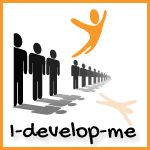Employability - the ability to get employed, is a pretty hot topic for students. It can be hard to secure that first role when you effectively have no experience and no idea how the degree, which you have worked hard for, will translate into the workplace. I had no idea what I wanted to do when I finished my first degree and certainly no idea how I was going to get a job to go with it.
The thing is, the stuff I spoke about to these students applies to anyone, in particular if you are trying to change the focus of your career. This is what I spoke about:
How important is your degree?
Well it is and it isn't. It's SO important and also not so much. How does this work? A tertiary qualification is a great thing to have in that it shows you can stick at something, juggle priorities, think critically and argue your point, present, and hopefully write well. All good things. However a degree without any kind of work experience can be a bit empty.
I've done quite a long post on this topic, which you can read about here.
What is your purpose?
I have written a bit about this topic. Do you understand your why? and Working out your purpose: 3 ways
The thing is though, do students finishing their undergraduate degree know what they want to do with their career? The question was asked of the group I presented to and around a third did. Great. Awesome. Not sure I believe them but great, awesome. Of course there are some people who know at 16, 18 and 20 what their passion and purpose is, but really, I think that's pretty rare.
So for those who don't know your purpose, I think that's pretty normal. I think you need a bit of life experience to work this out. You need to have worked in a few crappy jobs (even to work out what you don't want to do) and learnt a bit more about yourself. If you have been in the workforce for a bit the only way to work out what you think you want to do is to try lots of things, think about what makes you happy and what doesn't, and get some feedback. Hop to it!
Developing your skills
If you don't know your purpose and someone has told you that your degree may not be that important (me) what do you do? Well get a job. Some sort of job. Particularly if you haven't worked during your degree. I reckon working is better than not working, even if you are doing something you don't love. The trick is to understand what you can learn from that job. When I finished my undergraduate degree I took at job in retail. I knew that I didn't want to work in retail long term but I was lucky enough to be offered a place in the company management development program. I thought that would be a good experience and it was. I also knew that retail would help me develop communication skills, conflict management skills and I would have an income while I worked out what I really wanted to do.
When developing skills it's also important to think about breadth and depth in your career. Experiences in different size organisations and in roles that give you experiences across organisations and also deep in a particular area, are great for your career.
Social media: friend or foe?
I love social media, as many people do. Tools such as Instagram, Twitter, Facebook and more, help us to stay connected, inspire and keep us informed. However......when trying to get that coveted first job out of uni, or the next step in our career, social media may not be your friend.
When helping managers recruit people into their team, they are sometimes tempted to do some extra research. Privacy legislation says we can only collect information on candidates that is relevant to the role we are recruiting for. In this context, checking out someone's Linkedin profile is OK. Trawling through their Facebook page, is not.
My advice is make sure your Linkedin profile is complete, up-to-date and presents you in the most professional light. Use a high quality photo, preferably taken by an actual photographer (not your friend using an iPhone) and have it cropped so it looks good on Linkedin. A head and shoulders shot is your best bet. Photos taken "out on the town" while you were drinking cocktails (where you have cropped out most of the person with their arm around you ) is NOT appropriate for Linked in. Just saying.
What else?.....lock down your other social media accounts if they contain photos and information that is not relevant to your job or career. What I mean is, find the privacy setting and make sure only people you let see your profile can see it. Maybe you don't have anything too exciting on your Facebook page: what you ate for lunch; how many km's you walked today...but think about it from an employers point of view (who shouldn't be looking at your page but they will). I don't do anything exciting on social media but I probably follow some people and businesses that my employers may not want to be associated with. Think about it.
Lisa xx



















0 comments:
Post a Comment